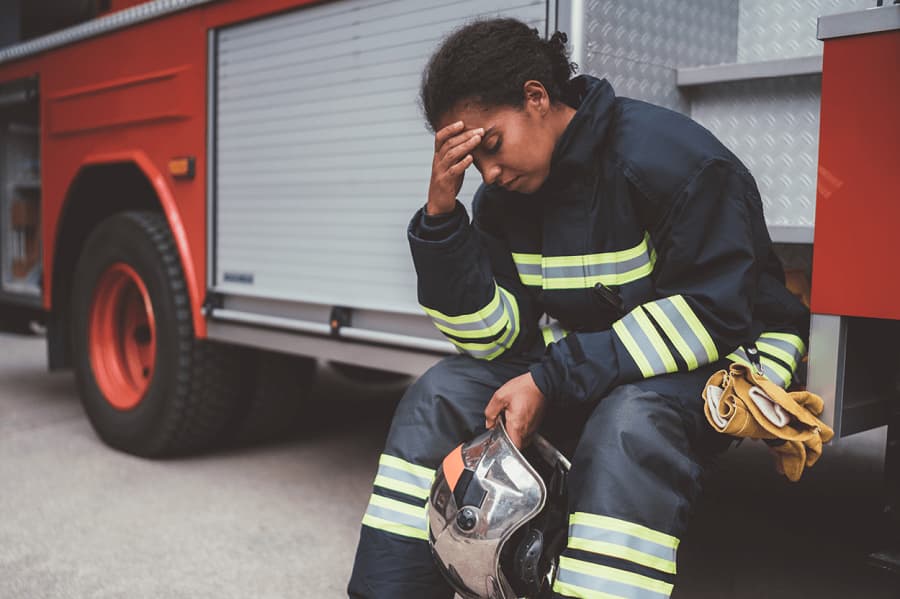If you’re a first responder, you know that your job can come with a heavy emotional burden. Some days are routine, but you never know when you’ll have to support someone through the most difficult moments of their life. No matter how many people you help, sometimes you can’t escape the thought that you could be doing more. You’re keenly aware of how many people are struggling at any given time. Furthermore, you might feel like you can’t open up to the people in your life about this emotional turmoil, because most of them have not walked in your shoes before.
First responders carry a unique emotional burden. Here are a few reasons why first responders often have such complicated relationships with their jobs.
Witnessing Tragedy
 There’s no getting around the fact that being a first responder means witnessing tragedies. Whether it’s a natural disaster, a crime scene, a medical emergency, or a car accident, first responders have to attend to people in the midst of life or death situations. The memories of these circumstances can be harrowing.
There’s no getting around the fact that being a first responder means witnessing tragedies. Whether it’s a natural disaster, a crime scene, a medical emergency, or a car accident, first responders have to attend to people in the midst of life or death situations. The memories of these circumstances can be harrowing.
Every first responder knows that this is the reality of their jobs when they start in these lines of work, but no one is truly prepared for the emotional impact of being present for these moments. Coming face to face with tragedy can stick with you for a lifetime.
Knowledge of Life’s Fragility
When you’re a first responder, you cannot ignore the fragility of life. You might be aware of risks and dangers that your family and friends barely seem to think about. Perhaps you experience heightened anxiety outside of work because of some of the events you’ve seen. It can be hard to figure out how to live a fulfilling, peaceful life while simultaneously maintaining this awareness of random risks. You may feel weighted down by this knowledge. In fact, you may even be jealous of loved ones who have the luxury of ignoring these issues.
Wishing You Could Do More
As a first responder, you already dedicate your life to helping others. Yet you can feel like your efforts are only a drop in the bucket. You work so hard, yet all you think about is how much more you could do, if only you had unlimited time and energy. When you’re off the clock, you might feel guilty for relaxing or enjoying your downtime.
Stoicism in the Face of Danger
You may have been present at scenes in your line of work that made you feel like breaking down. But you could not hesitate for a moment or shed a tear. Instead, you simply had to do your job.
The ability to maintain stoicism in dangerous and stressful situations is an invaluable skill for a first responder. At the same time, it can feel contrary to your nature. Outside of work, you still might have trouble fully processing these emotions.
Feeling Emotionally Isolated
Do you ever feel like the only people who can truly understand you are other first responders? Perhaps your friends who work in different fields encourage you to talk about your emotions, but you have trouble sharing your thoughts with people who aren’t first responders. As a result, you bottle up your feelings.
On the other hand, while you know that other first responders can empathize with you, it might not be easy to open up to them, either. You may worry that people will perceive you as “weak” if you’re struggling emotionally with the nature of your job.
–
The combination of all of the above can have a serious impact on your mental health. If you are a first responder struggling with the emotional burdens of your job, contact our practice to learn more about our online therapy options for first responders.
Author: Stephanie Saari
I am a Licensed Marriage and Family Therapist in California. I love working with couples and individuals to find strength, growth and empowerment through their struggles and challenges.

